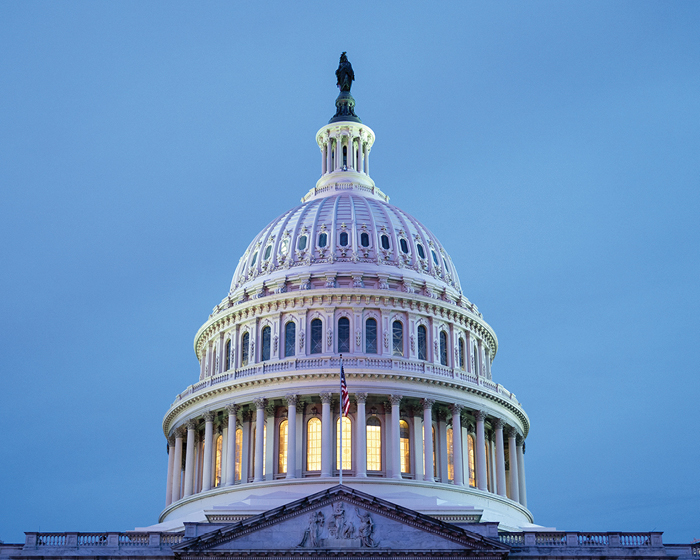Key Takeaways
- The parties are still looking for ways to deal with the year-end expiration of enhanced healthcare tax credits.
- Republicans want to give money directly to consumers, rather than as a tax credit for healthcare.
- Democrats claim this will enrich insurance companies further, at enrollees’ expense.
- IRS modernization plan escapes Congressional scrutiny.
- Hiring tax break gets bipartisan push.
When the government shutdown ended last week, not much was resolved. The Affordable Care Act tax credits were unchanged, with the enhancement first enacted in 2021 set to expire at the end of the year. There was some sense that the resolution gave the parties breathing room to look for solutions, with many members of both parties willing to work across the aisle.
The past week, however, has emphasized how wide the gulf between the parties on this issue is.
As is often the case, President Trump laid out the terrain in all-caps social media posts, blasting the idea of a simple extension as “sending money” to “big, fat, rich insurance companies”—and instead calling for cash payments sent “directly back to the people.”
This could conceivably take many forms—maybe even the tariff rebates that Trump has floated—but some in the Republican Party are interpreting it as a call for pre-funded tax-favored accounts, like health savings accounts or flexible spending accounts. Sen. Bill Cassidy, R-La., a former doctor, has proposed granting some Obamacare enrollees pre-funded HSAs, to cover copays, coinsurance, deductibles and other costs that come with insurance coverage.
Republicans have long championed tax-preferred accounts as a way to curb healthcare costs and give consumers more freedom. On the other hand, Democrats have claimed that even when they’re helpful, they’re no substitute for full insurance.
Sen. Ron Wyden, D-Ore., the ranking member of the Senate Finance Committee, reiterated that point in a report issued by Democrats on the committee on Wednesday, during a hearing on rising health costs.
“Financial institutions reap huge profits from the fees they charge consumers for administering these accounts, much of which they frequently pass along to the insurance companies they partner with, or even own outright,” the report states.
The report also claims that using HSAs or FSAs as a substitute for better insurance could leave patients on the hook for huge medical costs.
Democrats have expressed a lot of skepticism that Congress could pass any kind of meaningful reform to the healthcare system in the remaining weeks of 2025. A temporary extension could give the parties more time, but many conservatives are against any kind of additional funding for the Affordable Care Act exchanges, which they claim are an outright failure.
Despite the stark rhetorical divide, there are areas of potential agreement—but in this environment and with a compressed timeline, it could be difficult to put together any kind of workable compromise.
Recent Tax Pieces:
GOP Awaits Trump Direction on Health Care as Subsidy Spike Looms – Rachel Cohrs Zhang and Caitlin Reilly, Bloomberg Tax ($):
Republicans in the House and Senate at this stage seem to be talking past one another as they debate the path forward. Many are waiting for clearer direction from the president, who has offered vague support for a policy that would funnel financial support directly to individuals instead of subsidizing insurance premiums.
“I think that’s going to be necessary to get us to coalesce around any single proposal,” Republican Senator John Cornyn said.
This House GOP centrist is plotting a new health care bill aimed at winning over Trump – Jordain Carney and Meredith Lee Hill, Politico:
Fitzpatrick, who has been working with fellow GOP centrists who are desperate to address the subsidy cliff, said it was “our hope” that they would soon introduce a bill encompassing those provisions.
“We’re going to have to move quickly,” he said.
IRS Has a New Modernization Plan. Don’t Tell Congress. – Doug Sword, Tax Notes ($):
However, that the IRS had shared a “draft modernization framework” with the Government Accountability Office for a September report caught senior taxwriters and appropriators unaware. Eight were interviewed, and all said the draft hadn’t been shared with them.
Bipartisan Momentum Grows for Employment Tax Break Expansion – Zach C. Cohen, Bloomberg Tax:
“You win by adding,” said Sen. Bill Cassidy (R-La.), a tax writer sponsoring the legislation.
The joint legislative and lobbying effort could boost not just the renewal of a popular tax break that helps businesses offset training costs but a broader effort to help specific industries left out of Republicans’ massive tax law enacted in July.
Key Issues Facing The IRS Amid Looming Budget Cuts – Natalie Olivo, Law360 ($):
There are also fewer agents available to review filings that the system flags for errors or identity theft.
Make a habit of sustained success.



